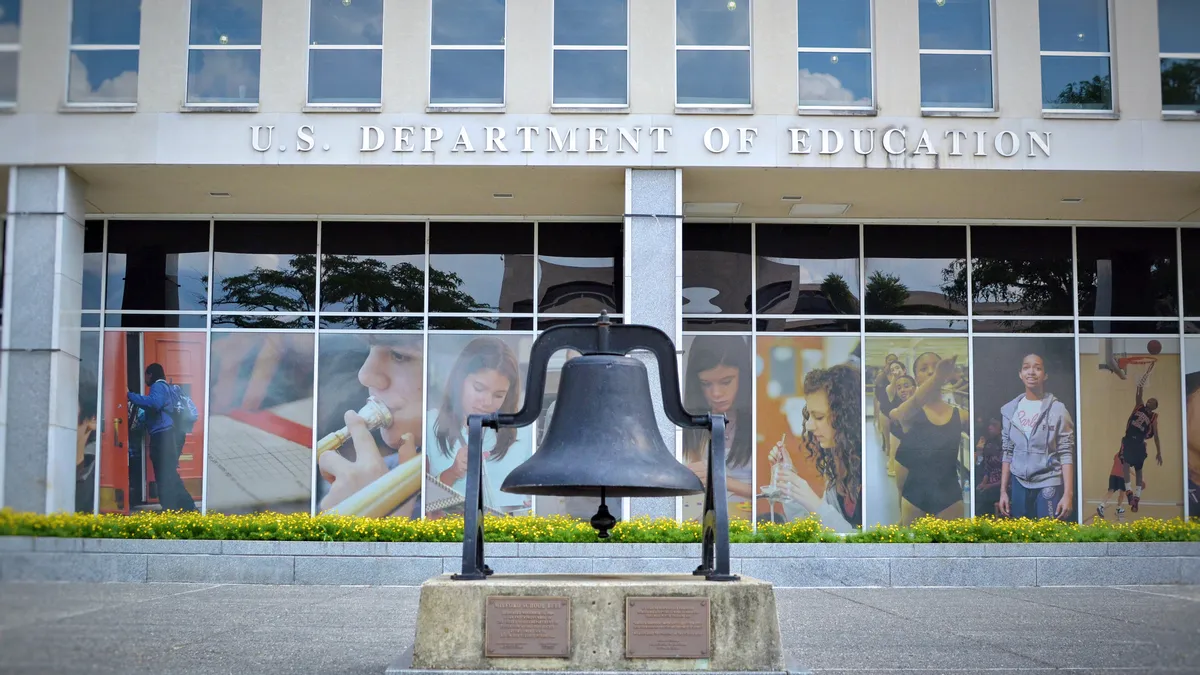Dive Brief:
- The former president of Kentucky State University is suing the institution, alleging the historically Black university owes him a severance payment of $270,000 plus $10,000 in relocation expenses because he was forced to resign.
- M. Christopher Brown II abruptly resigned from the top post at Kentucky State last summer. Months later, a state agency review of the university's finances found that overspending and poor financial management led to a massive budget deficit at the institution.
- In response to Brown's lawsuit, Kentucky State filed counterclaims against him in January, according to court documents. The university alleges Brown breached his contract and fiduciary duty by misrepresenting or not providing important information about the institution's worsening financial condition to its governing board.
Dive Insight:
The legal battle offers new understanding into what went wrong at Kentucky State, which is requesting $23 million from the state to cover its budget shortfall. An audit of the university's finances last year found consistent overspending and poor budgetary controls quickly depleted reserves.
Kentucky State alleges Brown mismanaged the university's budget, leading to multiyear deficits. It asserts Brown didn't obtain board members' approval before accessing funds from a loan for the institution and didn't alert them about large payments he either knew about or should have known about.
Elaine Farris, chair of Kentucky State's board of regents, told state lawmakers last week that the university's prior administration gave the board "inadequate information or false information" about the institution's financial status, The State Journal reported.
"When we found out and had concrete evidence of financial considerations we had to deal with as a board, we had a meeting and the board dealt with those issues," Farris said during the hearing. "That's when we decided we had to go in a different direction with leadership."
The university was required to pay Brown severance totaling his annual salary at the time of his termination if he was fired without cause, according to a copy of his contract included in his complaint. If he voluntarily left the position before his contract ended, however, he was not entitled to the severance payment.
Although Brown concedes he resigned, he alleges the governing board forced him to do so. His lawsuit, filed in the Franklin Circuit Court of Kentucky in November, alleges breach of contract and constructive discharge, which means a worker is forced to quit because of intolerable working conditions.
Brown's lawsuit offers a timeline of the events that led to his resignation. On July 12, Kentucky State's governing board held a meeting and presented Brown with a list of financial issues discovered after the resignation of the university's chief financial officer, Douglas Allen.
The lawsuit says the board asked Brown to fix these issues and offer more information at the next board meeting. Farris called Brown several times the next day, according to the complaint, telling him he had to lead the university out of the crisis and stating that Brown could fix the problems.
Yet the relationship appeared to sour, according to the lawsuit. On July 14, Farris sent a text message to Brown saying, "I am in no mental state right now to talk to you." Farris asked Brown to work with another administrator to write his resignation letter and send it to Farris for review.
The next day, a lawyer representing the board and university, William Johnson, emailed Brown asking for his resignation, according to the lawsuit. "I understand that if the Resignation is not submitted by you today that the Board will take necessary action to establish that you have been relieved as President of the University," the email said.
In Kentucky State's response to Brown's complaint, the university denies it forced him to resign to prevent him from receiving the full severance he would be entitled to if he was fired without cause.
Meanwhile, state Rep. James Tipton, a Republican, has sponsored a bill that would loan $23 million to the university for the 2021-22 fiscal year. It would also require Kentucky State's administration to provide at least four updates per year through the 2024-25 fiscal year about how it's improving its management.












